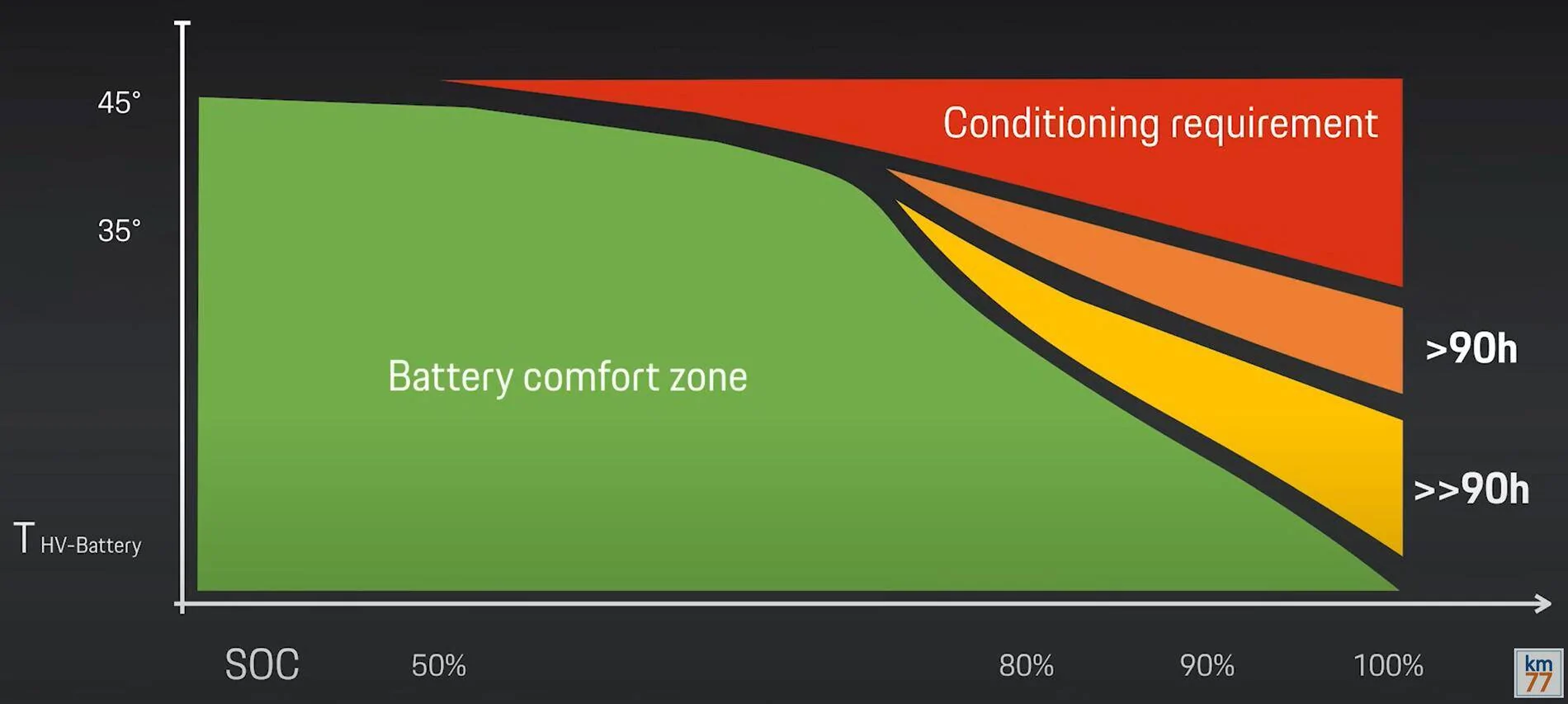- Joined
- Jul 11, 2018
- Threads
- 23
- Messages
- 64
- Reaction score
- 163
- Location
- CA
- Vehicles
- GT4 / Taycan Turbo
- Thread starter
- #1
Here's a text summary (by ChatGPT)
- ? Fast Charging Accelerates Battery Degradation
Studies show that higher charging rates lead to faster battery wear, with faster degradation occurring when using fast charging frequently. - ? Why Faster Charging Degrades Batteries
Fast charging throws lithium ions into the battery faster than they can properly diffuse within the graphite particles, causing lithium plating and eventual damage.  Factors Influencing Degradation
Factors Influencing Degradation
Three main factors affect degradation: state of charge, charge rate, and battery temperature. At high states of charge, the lithium ions have fewer available spaces, increasing the risk of lithium plating.- ? Temperature’s Role
Warmer batteries reduce the risk of lithium plating, but temperatures that are too high can increase SEI layer formation, causing long-term capacity loss. - ? Practical Solutions
Electric vehicles automatically adjust charging rates and temperatures to minimize the effects of fast charging. While fast charging has some impact, modern batteries and vehicle systems mitigate most negative effects.
- 5% degradation difference: A study found that after 50,000 miles, a car charged exclusively with fast chargers retained 70% of its original capacity compared to 75% for slow-charged cars.
- Temperature effect on degradation: A warmer battery charged at around 25°C could achieve over 3,000 full cycles before significant capacity loss occurred, compared to cold batteries, which suffer more from lithium plating.
Sponsored

